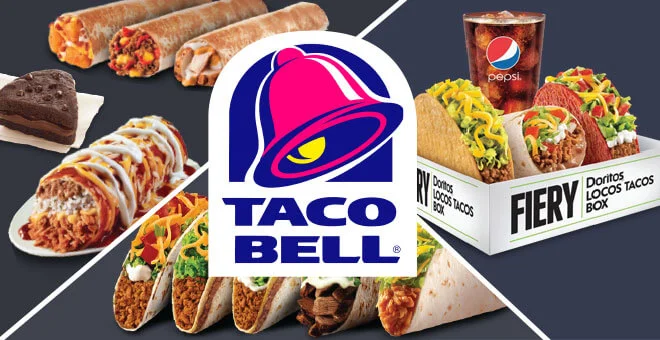What Is Commodity Market? Definition, Types & Examples

Discover the ins and outs of commodity markets in this informative article. Delve into the definition, types, and examples of commodities, and learn how HDFC SKY, the all-in-one investment platform by HDFC Securities, provides seamless access to this dynamic market along with a plethora of other financial instruments.
Introduction to Commodity Market
The commodity market is a vital component of the financial landscape, offering investors the opportunity to trade in physical goods such as gold, silver, crude oil, agricultural products, and more. Commodity trading involves buying and selling these goods through futures contracts, where investors speculate on the future price movements of the commodities. The market plays a crucial role in price discovery, risk management, and providing a platform for producers, consumers, and investors to hedge against price fluctuations. With HDFC SKY, investors can access the commodity market easily and efficiently, leveraging the platform’s zero brokerage on ETFs and user-friendly interface to make informed trading decisions.
Commodity Recommendations are essential for traders seeking insights into market trends. By analyzing market data and expert opinions, traders can make strategic decisions, enhancing their portfolio. HDFC SKY empowers investors with the tools needed for effective trading, ensuring a seamless experience in the dynamic commodity market.
Commodity markets are influenced by a variety of factors such as supply and demand dynamics, geopolitical events, weather conditions, and global economic trends. Understanding these factors is essential for successful trading in the commodity market. With HDFC SKY, investors can access real-time market data, research reports, and expert analysis to stay informed about the latest developments in the commodity market. Additionally, the platform offers a seamless trading experience with a wide range of commodities to choose from, allowing investors to diversify their portfolios and capitalize on opportunities in this dynamic market. By providing a comprehensive suite of tools and resources, HDFC SKY empowers investors to navigate the complexities of the commodity market with confidence and agility.
Understanding Commodity Market Basics
Understanding commodity market basics is essential for investors looking to diversify their portfolios and potentially capitalize on the fluctuations in commodity prices. HDFC SKY, a comprehensive investment platform by HDFC Securities, offers a convenient way for investors to access the commodity market alongside other financial instruments. Commodities are raw materials or primary agricultural products that can be bought and sold in the market. They are typically classified into two categories: hard commodities such as metals and energy products, and soft commodities such as agricultural products. The commodity market operates through futures contracts, where investors can speculate on the future price movements of commodities. By understanding the fundamentals of supply and demand, geopolitical factors, and global economic trends, investors can make informed decisions when trading commodities through HDFC SKY.
HDFC SKY’s user-friendly app provides investors with the tools and resources needed to navigate the commodity market efficiently. Investors can trade commodities such as gold, silver, crude oil, and agricultural products through the platform, leveraging the expertise and research capabilities of HDFC Securities. By keeping track of market trends, commodity prices, and global events that can impact commodity prices, investors can make strategic investment decisions to maximize their returns. With zero account opening fees and lifetime zero brokerage on ETFs, HDFC SKY offers a cost-effective way for investors to access the commodity market and build a diversified investment portfolio. Overall, understanding commodity market basics and utilizing HDFC SKY’s platform can empower investors to explore new investment opportunities and enhance their financial growth potential.
Commodity Trading with HDFC SKY enhances investor strategy by providing real-time insights and expert analysis. The app’s intuitive design and robust features ensure seamless navigation through volatile markets, empowering investors to make informed decisions and capitalize on emerging opportunities for greater financial success.
Types of Commodity Markets
Commodity markets can be broadly categorized into two main types: spot markets and futures markets. Spot markets involve the immediate purchase and sale of physical commodities, where the delivery of the commodity typically takes place within a short period after the transaction. These markets are essential for industries that require raw materials for production, as they allow for the efficient exchange of goods. Spot markets are influenced by factors such as supply and demand dynamics, geopolitical events, weather conditions, and government policies. Investors in spot markets can benefit from price fluctuations and hedging against potential risks.
On the other hand, futures markets involve the trading of standardized contracts for the future delivery of commodities at a predetermined price. These markets provide a platform for producers and consumers to hedge against price volatility and manage risks associated with fluctuations in commodity prices. Futures markets also attract speculators looking to profit from price movements without actually taking physical possession of the commodities. Participants in futures markets include farmers, miners, manufacturers, financial institutions, and individual traders seeking exposure to commodity price movements. The transparency and liquidity of futures markets make them an essential component of the global financial system, facilitating price discovery and risk management for various stakeholders.
Physical vs. Derivatives Commodity Markets
Physical commodity markets involve the buying and selling of actual physical goods such as gold, silver, crude oil, agricultural products, etc. Participants in physical commodity markets deal with the tangible assets themselves, either for consumption or for investment purposes. These markets are influenced by factors like supply and demand dynamics, geopolitical events, weather conditions, and storage costs. Investors in physical commodity markets may choose to store the goods themselves or use warehouses or storage facilities. HDFC SKY provides a platform for investors looking to participate in physical commodity markets, offering a seamless experience for buying, selling, and storing physical commodities.
Support and resistance in stock market concepts also play a crucial role in derivatives commodity markets. Unlike physical markets, derivatives markets involve trading contracts based on the underlying assets. These contracts allow investors to speculate on price movements without owning the actual commodities.
On the other hand, derivatives commodity markets involve trading financial contracts whose value is derived from the underlying physical commodity. These contracts can include futures, options, swaps, and forwards. Derivatives markets offer investors the opportunity to speculate on the price movements of commodities without actually owning the physical asset. This can provide leverage and hedging opportunities, allowing investors to manage risk and potentially earn profits from price fluctuations. HDFC SKY caters to investors interested in derivatives commodity markets, providing access to a wide range of derivative instruments related to commodities, along with research tools and educational resources to help investors make informed decisions.
Key Players in the Commodity Market
HDFC SKY emerges as a key player in the commodity market by providing investors with a one-stop platform for trading a diverse range of financial instruments. With zero account opening fees and lifetime zero brokerage on ETFs, HDFC SKY aims to attract investors looking for cost-effective trading solutions. The platform’s inclusion of commodities alongside stocks, mutual funds, IPOs, F&O, and currencies broadens the investment opportunities available to users, making it a versatile tool for portfolio diversification. By offering these services within a user-friendly app, HDFC SKY caters to both novice and experienced investors, ensuring accessibility and ease of use for all levels of traders in the commodity market.
In the competitive landscape of the commodity market, HDFC SKY stands out as a player that prioritizes convenience and cost-efficiency for its users. The platform’s comprehensive approach to investment, covering a wide array of financial products, positions it as a hub for investors seeking a holistic trading experience. By integrating commodities into its offerings, HDFC SKY taps into an asset class that can add value and diversification to investment portfolios. Moreover, the platform’s user-friendly app design ensures that investors can navigate the complexities of commodity trading with ease, making it a valuable tool for those looking to capitalize on opportunities in the commodity market.
Stock Market App by HDFC SKY further enhances investor experience by offering real-time data, personalized insights, and seamless integration with various financial tools. The app’s intuitive interface empowers users to make informed decisions, reinforcing HDFC SKY’s commitment to accessible and efficient trading solutions.
Factors Influencing Commodity Prices
Commodity prices are influenced by a multitude of factors that span global economic conditions, geopolitical events, supply and demand dynamics, weather patterns, and currency fluctuations. Global economic conditions play a significant role in determining commodity prices as they impact the overall demand for raw materials across industries. For instance, during periods of economic growth, the demand for commodities like oil, metals, and agricultural products tends to increase, driving prices higher. Conversely, during economic downturns, demand may weaken, leading to a decline in commodity prices. Geopolitical events such as trade disputes, wars, or sanctions can also have a substantial impact on commodity prices by disrupting supply chains, imposing tariffs, or affecting market sentiment.
Supply and demand dynamics play a crucial role in determining commodity prices as well. Factors such as crop yields, production levels, inventory levels, and technological advancements can all influence the balance between supply and demand, thereby affecting prices. Natural disasters like droughts, floods, or pest infestations can significantly impact agricultural commodity prices by affecting crop yields. Additionally, advancements in extraction technologies or new discoveries of resources can increase the supply of commodities, putting downward pressure on prices. Currency fluctuations also play a vital role in determining commodity prices since most commodities are priced in US dollars. Changes in exchange rates can affect the cost of importing or exporting commodities, ultimately impacting their prices in the global market.
Benefits of Investing in Commodity Markets
Investing in commodity markets offers a variety of benefits to investors. One key advantage is portfolio diversification. Commodities, such as gold, silver, crude oil, and agricultural products, have low correlation with traditional asset classes like stocks and bonds. By adding commodities to their investment portfolio, investors can reduce overall risk and enhance returns. Additionally, commodities provide a hedge against inflation. As the prices of commodities tend to rise during inflationary periods, investing in commodities can help investors preserve the value of their assets. HDFC SKY, with its user-friendly app and access to a wide range of commodities, enables investors to easily diversify their portfolios and protect against inflationary pressures.
Another benefit of investing in commodity markets is the potential for high returns. Commodities markets can be highly volatile, presenting opportunities for investors to profit from price fluctuations. With HDFC SKY’s zero brokerage on ETFs and seamless access to commodities trading, investors can take advantage of these market movements without incurring high transaction costs. Moreover, commodities serve as a store of value and can act as a safe haven asset during times of economic uncertainty. By investing in commodities through HDFC SKY, investors can tap into the potential for high returns and safeguard their portfolios against market volatility.
Risks Associated with Commodity Trading
Commodity trading involves inherent risks that investors need to be aware of. One of the primary risks associated with commodity trading is price volatility. Prices of commodities can fluctuate rapidly due to various factors such as supply and demand dynamics, geopolitical events, weather conditions, and economic indicators. These price fluctuations can lead to significant losses if not managed effectively. Another risk is leverage. Commodity trading often involves the use of leverage, which allows investors to control a larger position with a smaller amount of capital. While leverage can amplify profits, it also magnifies losses, exposing traders to the risk of substantial financial losses if the market moves against their positions.
Furthermore, market risk is a significant concern in commodity trading. Market risk refers to the risk of adverse movements in the overall market that can impact the prices of commodities. Factors such as changes in government policies, global economic conditions, and technological advancements can all influence market prices. Additionally, operational risks are prevalent in commodity trading, including risks related to trade execution, settlement processes, and counterparty risks. Traders must have robust risk management strategies in place to mitigate these risks and protect their investments in the volatile commodity markets. Through HDFC SKY, investors can access tools and resources to help navigate these risks effectively and make informed trading decisions.
Examples of Commodity Markets
Commodity markets are essential components of the global financial landscape, providing a platform for the trading of raw materials and primary agricultural products. One prominent example of a commodity market is the Chicago Mercantile Exchange (CME), which facilitates the trading of commodities such as corn, wheat, soybeans, and livestock. These markets play a crucial role in enabling producers to hedge against price fluctuations and allowing investors to speculate on the future price movements of various commodities. Additionally, commodity markets contribute to price discovery and provide liquidity to participants, ensuring the smooth functioning of the overall economy.
Another noteworthy example of a commodity market is the Multi Commodity Exchange of India (MCX), which offers a platform for trading a diverse range of commodities including gold, silver, crude oil, natural gas, and agricultural products. MCX plays a significant role in facilitating price risk management for participants in the Indian market, including producers, consumers, and investors. Through platforms like HDFC SKY, investors can access these commodity markets seamlessly, diversifying their portfolios and taking advantage of opportunities presented by the fluctuations in commodity prices. Overall, commodity markets serve as crucial mechanisms for price discovery, risk management, and investment diversification in the global financial landscape.
Future Trends in the Commodity Market
As we look ahead to future trends in the commodity market, it is evident that technology will play a crucial role in shaping the landscape. Platforms like HDFC SKY are revolutionizing the way investors access and trade commodities by offering a seamless and user-friendly experience. With the increasing digitization of financial markets, we can expect to see more sophisticated tools and algorithms being used to analyze market trends, predict price movements, and optimize trading strategies. This technological advancement will not only make commodity trading more efficient but also more accessible to a wider range of investors, democratizing access to this asset class.
Moreover, sustainability and ESG (Environmental, Social, and Governance) factors are becoming increasingly important in the commodity market. Investors are showing a growing interest in ethically sourced and environmentally friendly commodities, driving demand for sustainable investment options. Companies in the commodity sector are also under pressure to adopt responsible business practices to attract investors and maintain a competitive edge. As a result, we can anticipate a shift towards more transparent and sustainable supply chains in the commodity market, with an emphasis on ethical sourcing and production practices. HDFC SKY’s wide range of financial instruments, including commodities, positions it well to cater to this emerging trend by offering investors access to sustainable and ESG-compliant investment options.



